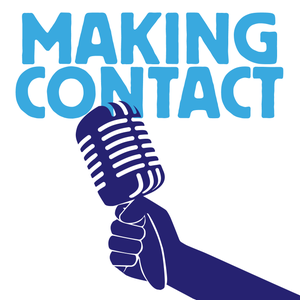
Making Contact
"Making Contact" By National Radio Project
- 29 minutes 16 secondsArt from the Inside: Why We Need More Art By And About Incarcerated Women (Encore)
On today's show, we look at how art can highlight the struggles of incarcerated women, build solidarity with them across prison walls, and fight against the erasure and censorship inherent to incarceration.
First, we'll hear about a dance performance called "If I Give You My Sorrows" that's built around the complex ways that incarcerated women relate to their beds. Then, we'll learn about an art exhibition, "The Only Door I Can Open," that's curated and created by incarcerated artists, writers and poets inside Central California Women's Facility.
Featuring
Jo Kreiter, artistic director of Flyaway Productions and creative director of If I Give You My Sorrows Betty McKay, formerly incarcerated advocate and organizer Tomiekia Johnson, incarcerated writer and co-curator of The Only Door I Can Open Chantell-Jeannette Black, incarcerated artist and co-curator of The Only Door I Can Open Rahsaan “New York” Thomas, executive director of Empowerment Avenue
Credits
Making Contact Team
Episode Host: Lucy Kang Producers: Anita Johnson, Salima Hamirani, Amy Gastelum, and Lucy Kang Executive Director: Jina Chung Editor: Adwoa Gyimah-Brempong Engineer: Jeff Emtman Digital Media Marketing: Lissa Deonarain
Special thanks to Christine Lashaw from Empowerment Avenue for recording interviews with Tomiekia and Chantell that were part of this show.
Music
The music in this episode was excerpted from compositions for If You Give Me Your Sorrows.
“Skewed”
Carla Kihlstedt – voice, music box, field recordings Elijah Oberman – voice, synths Music/sound design – Carla Kihlstedt & Eli Oberman “Where Betty Can Go Find Betty”
Pamela Z – voice, processing, MIDI instruments Vocal samples excerpted from an interview with Betty McKay Music by Pamela Z “Closure”
Cole Kamen-Greene – trumpet Carla Kihlstedt – voice, violin Devin Ray Hoff – bass Matthias Bossi – percussion Music by Carla Kihlstedt (with structural advice from Elijah Oberman) “Prayer”
Carla Kihlstedt – voice Music by Carla Kihlstedt “Salve”
Kalyn Harewood – spoken voice (excerpted from an interview with Tomiekia Johnson) Carla Kihlstedt – violin, nyckelharpa, marxophone, voice Elijah Oberman – violin, sound design Jeremy Flower – synth programming Jon Evans – bass, guitar Matthias Bossi – percussion Music by Carla Kihlstedt
The Only Door I Can Open and If I Give You My Sorrows presented by Yerba Buena Center for the Arts in 2025: www.ybca.org/event/the-only-door-i-can-open and www.ybca.org/event/if-i-give-you-my-sorrows The Only Door I Can Open virtual exhibition hosted by MoAD: www.moadsf.org/virtual-exhibition Empowerment Avenue website: www.empowermentave.org Flyaway Productions: www.flyawayproductions.com Museum of the African Diaspora: www.moadsf.org The music featured in If I Give You My Sorrows is available for purchase: http://ifigiveyoumysorrows.bandcamp.com Petition for Tomiekia Johnson’s request for commutation https://www.change.org/p/gavin-newsom-grant-commutation-for-incarcerated-survivor-tomiekia-johnson
Making Contact is an award-winning, nationally syndicated radio show and podcast featuring narrative storytelling and thought-provoking interviews. We cover the most urgent issues of our time and the people on the ground building a more just world.
15 January 2025, 9:00 am - 29 minutes 16 secondsBorders: What are they good for? (Encore)
What are borders, and why do we have them? And how is violent border enforcement at the US-Mexico border connected to Israel's brutal assault on Gaza? And what happens when borders cross living land and communities?
We'll dig into these questions on this week's episode with the help of Heba Gowayed, sociology professor at CUNY Hunter College and Graduate Center. And then we'll hear a story brought to us by In Confianza, with Pulso about one time when the natural boundary between two countries changed – and what happened to the people caught on the other side.
Featuring:
Heba Gowayed, sociology professor at CUNY Hunter College and Graduate Center and author of "Refuge: How the State Shapes Human Potential" and the forthcoming "The Cost of Border"
Credits:
"The Border is Alive!" from In Confianza, with Pulso**
- Written and produced by Charlie Garcia
- Edited by Liz Alarcón
- Original Music by Julian Blackmore
- Audio engineering and mixing by Charlie Garcia and Julian Blackmore
- Special thanks to Gina Hernandez at Chamizal National Memorial
Making Contact Staff:
- Host: Lucy Kang
- Producers: Anita Johnson, Salima Hamirani, Amy Gastelum, and Lucy Kang
- Executive Director: Jina Chung
- Editor: Adwoa Gyimah-Brempong
- Engineer: [Jeff Emtman](http://www.jeffemtman.com/)
- Digital Media Marketing: Anubhuti Kumar
Music Credits:
"Documentary" by AlisiaBeats via Pixabay
Learn More:
Making Contact website: [www.radioproject.org](http://www.radioproject.org/)
Heba Gowayed: www.[hebagowayed.com](http://hebagowayed.com/)
In Confianza, with Pulso: [www.projectpulso.org/tag/podcast](http://www.projectpulso.org/tag/podcast)
URL:
https://focmedia.org/2024/05/borders-what-are-they-good-for/
Making Contact is an award-winning, nationally syndicated radio show and podcast featuring narrative storytelling and thought-provoking interviews. We cover the most urgent issues of our time and the people on the ground building a more just world.
8 January 2025, 9:00 am - 29 minutes 17 secondsJenny Odell on Saving Time (Encore)
On this week's episode, we speak with Jenny Odell, acclaimed author of _Saving Time: Discovering a Life Beyond the Clock_ and _How to Do Nothing: Resisting the Attention Economy._
We'll dig into the ideas behind _Saving Time, _which gives a sweeping panoramic overview of how the ways we think about time actually shapes our lives. We begin with a critical look at productivity culture and the idea that time is money. Then we'll hear how to begin to disentangle our daily concept of time from its capitalistic and colonialist roots in order to liberate and expand our relationship to time.
Featuring:
Jenny Odell, artist and author of Saving Time: Discovering a Life Beyond the Clock and How to Do Nothing: Resisting the Attention Economy
Credits:
- Host: Lucy Kang
- Producers: Anita Johnson, Salima Hamirani, Amy Gastelum, and Lucy Kang
- Executive Director: Jina Chung
- Editor: Adwoa Gyimah-Brempong
- Engineer: Jeff Emtman
- Digital Media Marketing: Anubhuti Kumar
Music Credits:
- "Simonero" by Keyframe Audio via Pixabay
- "Documentary Ambient Guitar" by William\_King via Pixabay
- Clock sound effects by Pixabay and Semen Surin via Pixabay
Learn More:
Making Contact is an award-winning, nationally syndicated radio show and podcast featuring narrative storytelling and thought-provoking interviews. We cover the most urgent issues of our time and the people on the ground building a more just world.
1 January 2025, 9:00 am - 29 minutes 30 secondsDecoding Algorithmic Racism with Dr. Safiya Umoja Noble
On this week's episode, we dive into the hidden biases of the digital age with Dr. Safiya Umoja Noble, author of the groundbreaking book, _Algorithms of Oppression._ Dr. Noble unpacks how search engines, often seen as neutral tools, can reinforce harmful stereotypes and limit access to critical knowledge. Join us as we explore the forces shaping our digital experiences and discuss the urgent need for accountability in technology.
Featuring:
Dr. Safiya U. Noble is the David O. Sears Presidential Endowed Chair of Social Sciences and Professor of Gender Studies, African American Studies, and Information Studies at the University of California, Los Angeles (UCLA). She is the Director of the Center on Race & Digital Justice and Co-Director of the Minderoo Initiative on Tech & Power at the UCLA Center for Critical Internet Inquiry (C2i2). She currently serves as Interim Director of the UCLA DataX Initiative, leading work in critical data studies for the campus.
Making Contact Team:
- Episode Host: Lucy Kang
- Producers: Anita Johnson, Salima Hamirani, Amy Gastelum, and Lucy Kang
- Executive Director: Jina Chung
- Editor: Adwoa Gyimah-Brempong
- Engineer: Jeff Emtman
- Digital Media Marketing: Lissa Deonarain
Music credits:
- Xylo-Ziko - Phase 2
- Audiobinger - The Garden State
Learn More:
Watch Dr. Noble discuss the themes of her book in this lecture.
Making Contact is an award-winning, nationally syndicated radio show and podcast featuring narrative storytelling and thought-provoking interviews. We cover the most urgent issues of our time and the people on the ground building a more just world.
25 December 2024, 9:00 am - 29 minutes 30 secondsArt from the Inside: Why We Need More Art By And About Incarcerated Women
On today's show, we look at how art can highlight the struggles of incarcerated women, build solidarity with them across prison walls, and fight against the erasure and censorship inherent to incarceration.
First, we'll hear about a dance performance called _If I Give You My Sorrows _that's built around the complex ways that incarcerated women relate to their beds. Then, we'll learn about an art exhibition, _The Only Door I Can Open, _that's_ _curated and created by incarcerated artists, writers and poets inside Central California Women's Facility.
Featuring:
- Jo Kreiter, artistic director of Flyaway Productions and creative director of _If I Give You My Sorrows_
- Betty McKay, formerly incarcerated advocate and organizer
- Tomiekia Johnson, incarcerated writer and co-curator of _The Only Door I Can Open_
- Chantell-Jeannette Black, incarcerated artist and co-curator of _The Only Door I Can Open_
- Rahsaan “New York” Thomas, executive director of Empowerment Avenue
**Making Contact Team:**
- Episode Host: Lucy Kang
- Producers: Anita Johnson, Salima Hamirani, Amy Gastelum, and Lucy Kang
- Executive Director: Jina Chung
- Editor: Adwoa Gyimah-Brempong
- Engineer: [Jeff Emtman](http://www.jeffemtman.com/)
- Digital Media Marketing: Lissa Deonarain
**Music credits: **
The music in this episode was excerpted from compositions for _If You Give Me Your Sorrows._
"Skewed"
- Carla Kihlstedt – voice, music box, field recordings
- Elijah Oberman – voice, synths
- Music/sound design – Carla Kihlstedt & Eli Oberman
"Where Betty Can Go Find Betty"
- Pamela Z – voice, processing, MIDI instruments
- Vocal samples excerpted from an interview with Betty McKay
- Music by Pamela Z
"Closure"
- Cole Kamen-Greene – trumpet
- Carla Kihlstedt – voice, violin
- Devin Ray Hoff – bass
- Matthias Bossi – percussion
- Music by Carla Kihlstedt (with structural advice from Elijah Oberman)
"Prayer"
- Carla Kihlstedt – voice
- Music by Carla Kihlstedt
"Salve"
- Kalyn Harewood – spoken voice (excerpted from an interview with Tomiekia Johnson)
- Carla Kihlstedt – violin, nyckelharpa, marxophone, voice
- Elijah Oberman – violin, sound design
- Jeremy Flower – synth programming
- Jon Evans – bass, guitar
- Matthias Bossi – percussion
- Music by Carla Kihlstedt
Learn More:
- Making Contact:
- The Only Door I Can Open and, If I Give You My Sorrows_ presented by Yerba Buena Center for the Arts in 2025
- The Only Door I Can Open_ virtual exhibition hosted by MoAD:
- Empowerment Avenue website
- Flyaway Productions:
- Museum of the African Diaspora: [www.moadsf.org](www.moadsf.org)
- The music featured in _If I Give You My Sorrows_ is available for purchase here:
- Petition for Tomiekia Johnson's request for commutation:
Making Contact is an award-winning, nationally syndicated radio show and podcast featuring narrative storytelling and thought-provoking interviews. We cover the most urgent issues of our time and the people on the ground building a more just world.
18 December 2024, 9:00 am - 29 minutes 31 secondsMexicans Confronting Racism: Aztec Myths to Modern Stereotypes (Encore)
There’s an idea in Mexico that racism doesn’t exist, that all Mexicans are “mestizo” – a homogenous blend of Spanish and indigenous. But cultural worker José Antonio Aguilar says racism is lived by Black and brown Mexicans in many ways. He founded Racismo MX, an organization which seeks to dismantle racism, after coming to terms with his own racial reality as a “prieto” – a brown man. We also hear from anthropologist Ismael Rivera and Aztec expert Camilla Townsend as they unravel lies the Spanish colonizers told about ancient Aztecs that still feed racist tropes today.
Featuring:
- José Antonio Aguilar – Racismo MX, Founder and Director
- Ismael Rivera – Anthropologist, Historian, Cultural Guide
- Dr. Camilla Townsend, P.h.D. – Rutgers University, Professor
**Making Contact**
- Host: Amy Gastelum
- Freelance Producer: Anthony Wallace
- Producers: Anita Johnson, Salima Hamirani, Amy Gastelum, and Lucy Kang
- Executive Director: Jina Chung
- Engineer: [Jeff Emtman](https://jeffemtman.com/)
- Digital Media Marketing: Lissa Deonarain
**Music**
Nahuales Negros – Chinampa, Cempasúchil, Barcos A Lo Lejos, Mixquic, Teponaztli, Danza A Pakal
Learn More:
- Ismael Rivera Tours
- Racismo MX
- [Camilla Townsend ](https://history.rutgers.edu/people/faculty/details/188-townsend-camilla)
Making Contact is a 29-minute weekly program committed to investigative journalism and in-depth critical analysis that goes beyond the breaking news. On the web at www.focmedia.org.
11 December 2024, 9:00 am - 29 minutes 30 secondsThe Problematic History of Gender Testing at the Olympics (Encore)
The attacks on Imane Khelif's gender at this year's 2024 Paris Olympics is not new. In fact, the focus on women's appearance and gender expression goes back to the founding of the Olympics, the minute women entered elite sports. We talk to Rose Eveleth, host and producer of the podcast Tested about the history of sex testing in the Olympics and why it existed in the first place, why there's no easy way to classify the natural, biological variation that exists in human beings and why we might want to consider new ways of organizing athletes that is less sexist, racist and more accepting of genders outside of a simple binary.
Featuring:
Rose Eveleth, host and producer of the podcast Tested
Episode Credits:
- Host: Salima Hamirani
- Producers: Anita Johnson, Salima Hamirani, Amy Gastelum, and Lucy Kang
- Executive Director: Jina Chung
- Editor: Adwoa Gyimah-Brempong
- Engineer: Jeff Emtman
- Digital Media Marketing: Lissa Deonarain
Music:
- Alpha Hydrae - Friends
- Soft and Furious - So What
- Axletree- The Silent Grove
- Blear Moon - Further Discovery
- Crowander - Opening Lines.
Learn More:
Making Contact is an award-winning, nationally syndicated radio show and podcast featuring narrative storytelling and thought-provoking interviews. We cover the most urgent issues of our time and the people on the ground building a more just world.
4 December 2024, 9:00 am - 29 minutes 29 secondsMothers, Markets, and Migration: How South Korea Became a Major Source for International Adoptions
In this week's episode, we take a look at how over six decades after the Korean War, South Korea processed the most international adoptions in history and how the demand for a "domestic supply of (adoptable) infants" may be playing a role in increasing threats to autonomy over pregnancy in the US.
Featuring:
- Independent Producer and Founder of Rowhome Productions, Alex Lewis
- Producer, Schuyler Swenson
- Registered Midwife, Lydia Doublestein
Making Contact Team:
- Episode Host: Amy Gastelum
- Producers: Anita Johnson, Salima Hamirani, Amy Gastelum, and Lucy Kang
- Executive Director: Jina Chung
- Editor: Adwoa Gyimah-Brempong
- Engineer: Jeff Emtman
- Digital Media Marketing: Lissa Deonarain
Guest Producers:
- Producer/Reporter, Anne Noyes Saini
- Producer, Schuyler Swenson
Music:
- \*Andy G. Cohen, "Bumbler"
- \*Zé Trigueiros, "Big Road of Burravoe", "Ponto"
- \*Hogan Grip, "Stance Gives You Balance"
Music was changed only in length and volume levels and can be found here: http://www.freemusicarchive.org/.
Making Contact is an award-winning, nationally syndicated radio show and podcast featuring narrative storytelling and thought-provoking interviews. We cover the most urgent issues of our time and the people on the ground building a more just world.
27 November 2024, 9:00 am - 29 minutes 30 secondsWe need affordable housing now! (Encore)
We need affordable housing now! On today's episode, we dive into stories that underscore the importance of affordable housing.
We'll examine what the recent Supreme Court ruling in Grants Pass v. Johnson means for unhoused people who are living on the streets and how historical disinvestment in affordable and public housing has created our current homelessness wave.
Then, we'll hear about the fight to legalize and preserve one important type of affordable housing units in New York City – basement apartments – and how the escalating impacts of climate change are making that campaign more urgent than ever.
Featuring:
- Paul Boden, executive director of the Western Regional Advocacy Project
- Annetta Seecharran, executive director of Chhaya Community Development Corporation
Making Contact Team:
- Episode Host: Lucy Kang
- Producers: Anita Johnson, Salima Hamirani, Amy Gastelum, and Lucy Kang
- Executive Director: Jina Chung
- Editor: Adwoa Gyimah-Brempong
- Engineer: Jeff Emtman
Music credit:
- Pending (Relaxing Acoustic Ballad Nylon Guitar) by William\_King via Pixabay
Credits for "Invisible Homeless" by the Queens Memory Podcast
- Episode produced by Stella Gu in conjunction with Melody Cao, Anna Williams, and Natalie Milbrodt
- Podcast hosted by J. Faye Yuan
- Mixing and editing by Cory Choy
- Music composed by Elias Ravin
- Voiceover work by Xia Liangjie and Chen Xiaojun
Learn More:
- Making Contact homepage: www.focmedia.org
- Western Regional Advocacy Project: https://wraphome.org/
- Queens Memory Podcast: www.queensmemory.org
- Chhaya CDC: BASE Campaign
Making Contact is an award-winning, nationally syndicated radio show and podcast featuring narrative storytelling and thought-provoking interviews. We cover the most urgent issues of our time and the people on the ground building a more just world.
20 November 2024, 9:00 am - 29 minutes 29 secondsKev Choice: Love, Growth, and the Power of Music
In this episode of Making Contact, we sit down with Kev Choice, a classically trained pianist, rapper, composer, and educator, who has reshaped the Bay Area music scene. Raised in Oakland with San Francisco roots, Kev blends hip-hop, jazz, soul, and classical music into a unique sound. His latest EP, All My Love, explores themes of love, vulnerability, and human connection, with soulful melodies and reflective lyrics capturing the complexities of relationships. Through music and mentorship, Kev uses his platform to inspire change and elevate consciousness.
Kev Choice is a pianist, rapper, composer, and educator from Oakland, California, known for blending hip-hop with classical, jazz, and funk influences. His music is celebrated for its thought-provoking lyrics, intricate musical arrangements, and powerful live performances. Kev’s versatility as both a trained musician (with a degree in Piano Performance) and a hip-hop artist allows him to create a unique sound that transcends genre boundaries.
Episode Credits:
- Host: Anita Johnson
- Producers: Anita Johnson, Salima Hamirani, Amy Gastelum, and Lucy Kang
- Executive Director: Jina Chung
- Engineer: Jeff Emtman
- Digital Media Marketing: Lissa Deonarain
Music:
- Kev Choice "All This Love"
- Kev Choice "Congratulations"
- Kev Choice "Searching for a Feeling
- Kev Choice "Fresh Fade"
- Kev Choice "International Blvd"
- Kev Choice "God"
- Kev Choice "Feel What I Feel
Learn More:
- https://kevchoice.wordpress.com/
- https://www.instagram.com/kevchoice/?hl=en
- https://westcoaststyles.com/interviews/2024/04/kev-choice-love-liberation/
- https://www.oaklandsymphony.org/artist/kev-choice/
13 November 2024, 9:00 am - 29 minutes 29 secondsBirth Parents on Adoption
Because of the fall of Roe v. Wade, we're hearing a lot more about adoption as an alternative for women who find themselves with an unwanted pregnancy. And even before, media portrayals of adoption have always painted it as an easy ethical conclusion to a difficult circumstance. But the real, lived experiences of birth parents who give up their children for adoption have never been part of the conversation. Do birth parents really see adoption as an alternative to abortion? Are they happy with their decision to relinquish their children? It turns out that for the most part, they're not.
We talk to Samantha Gonzalez, a birth mother, and Gretchen Sisson, author of the book "Relinquished: The Politics of Adoption and the Privilege of American Motherhood."
Making Contact Team:
- Episode Host: Salima Hamirani
- Producers: Anita Johnson, Salima Hamirani, Amy Gastelum, and Lucy Kang
- Executive Director: Jina Chung
- Editor: Adwoa Gyimah-Brempong
- Engineer: Jeff Emtman
- Digital Marketing Manager: Lissa Deonarain
Music credits:
- Axletree - The Silent Grove
- Axletree - Goldfinch- Flight to the North
- Blear Moon - Learning from Kids
- Doctor Turtle - Leap Second
- Hinterheim - Prior Restraint
Learn More:
- Reproductive Justice in Adoption
- Considering Adoption Planned Parenthood
- Relinquished Book Page
- Gretchen Sisson
Making Contact is an award-winning, nationally syndicated radio show and podcast featuring narrative storytelling and thought-provoking interviews. We cover the most urgent issues of our time and the people on the ground building a more just world.
6 November 2024, 9:00 am - More Episodes? Get the App
Your feedback is valuable to us. Should you encounter any bugs, glitches, lack of functionality or other problems, please email us on [email protected] or join Moon.FM Telegram Group where you can talk directly to the dev team who are happy to answer any queries.
 Upstream
Upstream
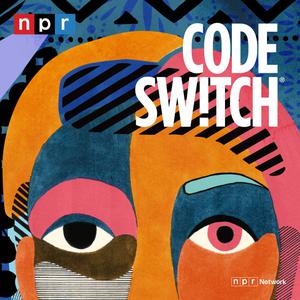 Code Switch
Code Switch
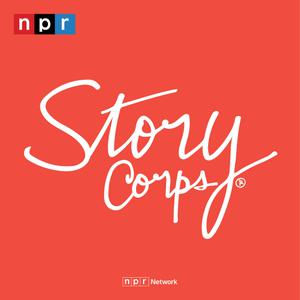 StoryCorps
StoryCorps
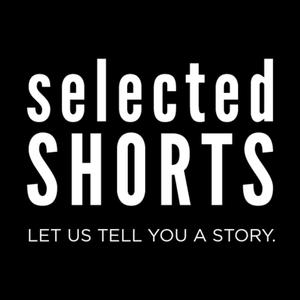 Selected Shorts
Selected Shorts
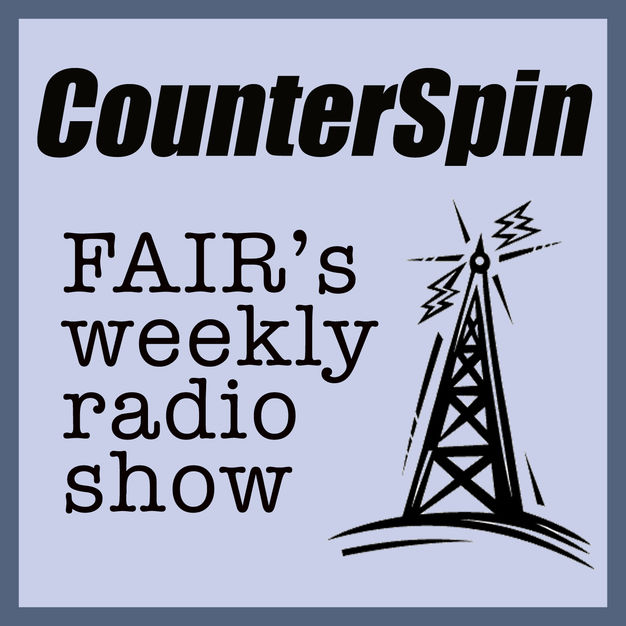 CounterSpin
CounterSpin
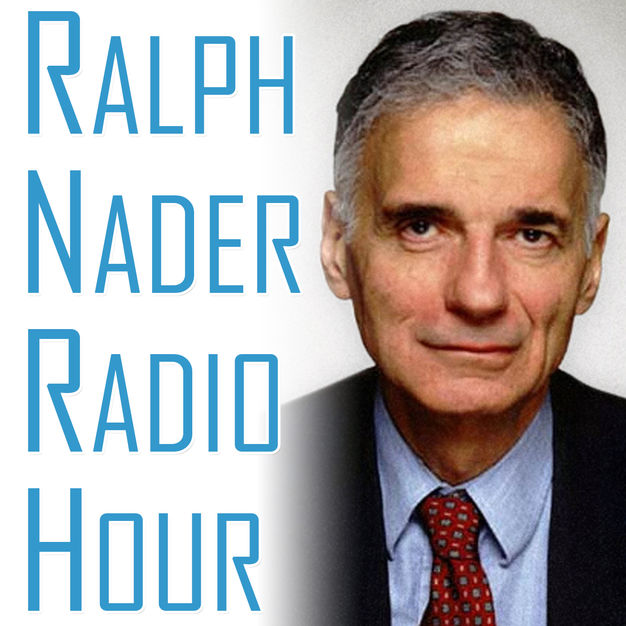 Ralph Nader Radio Hour
Ralph Nader Radio Hour